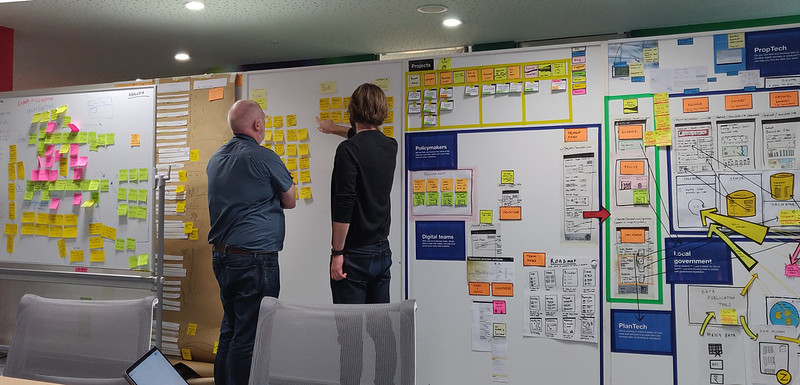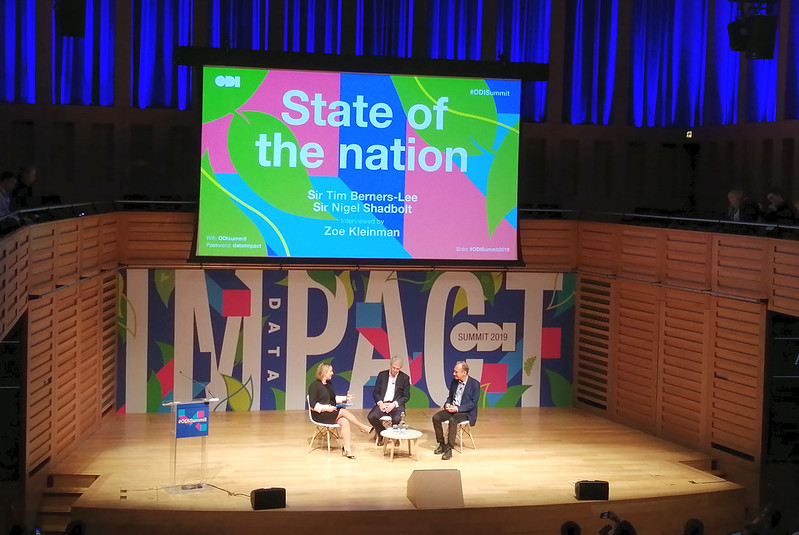Digital Land sprint notes – pre-election period
We look back on what the Digital Land team worked on during the pre-election period.
Team
Adam our developer has left the team after a fantastic couple of years. Whilst we’re sad to see Adam go, we’re very happy to say that our new senior user researcher Stephanie has joined us, along with Rishi who will work on policy.
Paul and Natalie have been working with Richard Pope who has been helping us develop our strategy, in particular for planning.
Some of the team attended the Open Data Institute Summit. The day was packed with interesting, inspiring talks that were highly relevant to our team’s work.
A highlight was the keynote speaker’s, Caroline Criado Perez, talk on the impact gender biases in data have on women. Data more frequently uses the average male to represent the average human, leading to daily annoyances like long toilet queues or cold offices, to life-threatening implications such as women being 50% more likely to be misdiagnosed following a heart attack, or 17% more likely to die in a car crash.
It was interesting to reflect, not only on the importance of accurate, trustworthy and representative data, but also on how we as the collectors, cleaners and publishers of data can influence its reliability.
In December, we had a great time at the digital directorate’s Christmas away day, filled with inspiring talks from our director Paul Maltby, as well as from policy and digital colleagues. We loved taking part in the unconference, addressing topics that ranged from how to include introverts in team discussions, to ways our department can minimise impact on climate change - a fantastic way to tailor the day around your interests!
A huge thank you to our Corporate Office for organising a great day.
Brownfield Sites
Adam and Colm have been developing ways to harmonise (automatically correct) common errors in a brownfield land register file, using the brownfield validator. The validator can now show users a report breakdown of all errors in their register, which they can then fix. Several of these fixes are now automated, including the option to add missing headers, fix incorrect headers, and fix date formatting.
We’ve also extracted the validator code so that it can be reused elsewhere, for example in the register collector. This means we will be able to produce a report for all local planning authorities who publish their brownfield site register.
Emily and Lorna have been improving the brownfield validator content. Emily has also iterated the brownfield guidance on GOV.UK after receiving helpful feedback from local planning authorities who have used it to publish their register.
Developer contributions
We selected 6 local planning authorities from 14 candidates to visit as a part of our user testing. These were selected to cover a variety of:
- volumes of contributions (CIL and S106 agreements)
- software providers and systems
- reporting responsibilities (joint, unitary, district, and county council)
- geographic locations
Our visits throughout November and December were extremely useful, providing insight into the complexity of developer contributions and how difficult it might be to fit information that frequently changes into a standardised data format. Some of the main learnings were that:
- local planning authorities see value in publishing the data, especially if other people can make dashboards for them
- some of our terminology is imprecise, and is understood in different ways by different people
- the data format is flexible to allow different methods of creating the data, but having lots of options doesn't help people creating the data manually
- a number of people asked for stronger guidance, especially when creating the data manually
- people particularly struggled to generate unique reference numbers
- people wanted to see more examples before making their own data
- users wanted to better understand the reasoning behind the way the data has been designed in the way it has
- some people expected more details of individual CIL transactions, but these are not expressible in the current data format
- Section 106 agreements can contain optional clauses, and in-kind contributions, but these are not easily expressed in the current data model
These were only a few of the many insights we're now analysing and learning from. Thank you to all the brilliant participants who offered their time to help us improve our services.
PropTech
Natalie and Jess ran a PropTech visit with the Minister of State for Housing at Geovation, meeting with a variety of companies and hearing the perspective from several companies' clients. Alex Wrottesley was a tremendous host and we were also excited to announce the new expert property innovation council.
Jess also attended the launch of London's Civic Innovation Challenge. She has been gathering perspectives from PropTech companies related to the build quality of new homes, and met with colleagues leading work in that area to hand over a summary of input from the past 2 months.



